Results
-
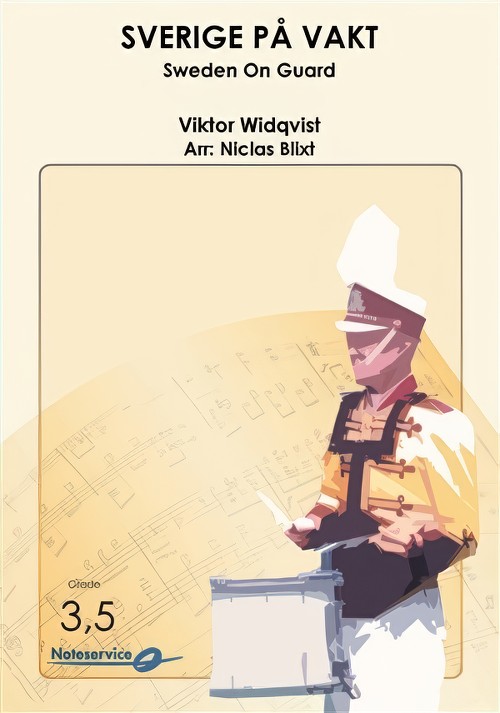 £63.50
£63.50Sverige pa Vakt (Sweden on Guard) (Concert Band - Score and Parts) - Widqvist, Viktor - Blixt, Niclas
Sweden On Guard is part of Widkvist's earliest march production. It was composed around 1914 when he served in the engineering troops.It is worth noting that the march from the beginning was probably intended for a small sized brass band and was later rearranged for a full military band by the composer. When I searched in the Swedish War Archives many years ago, looking for more or less forgotten marches, this work, among others, appeared. I immediately became attached to the young Widkvist's catchy melodies and clear harmonic tonal language that express faith in the future and optimism.Sweden On Guard has never been published in print before, and the work of modernizing the setting without resorting to the elegance and resilience of the original has been a challenge.- Niclas BlixtDuration: 2.30
Estimated dispatch 7-14 working days
-
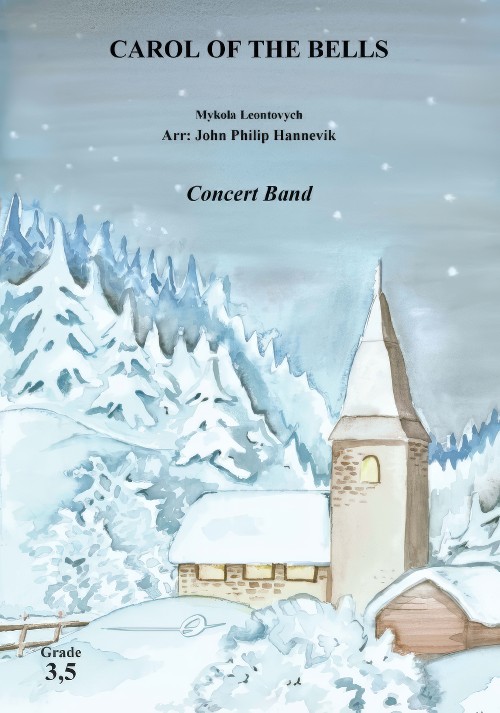 £94.00
£94.00Carol of the Bells (Concert Band - Score and Parts) - Leontovych, Mykola Dmytrovich - Hannevik, John Philip
Ukrainian composer Mykola Leontyovich composed this famous Christmas Carol in 1914. The carol is based on a folk chant called Shchedryk. The composer was a supporter of the independence movement in Ukraina, and was assassinated by a Soviet agent in 1921.The carol was made famous after the adaption by Peter J. Wilhousky in 1936. Wilhousky worked as an arranger for the NBC symphony orchestra. It is also well known from popular culture, like the film Home Alone (1990), and a version by the vocal group Pentatonix.Duration: 2.30
Estimated dispatch 7-14 working days
-
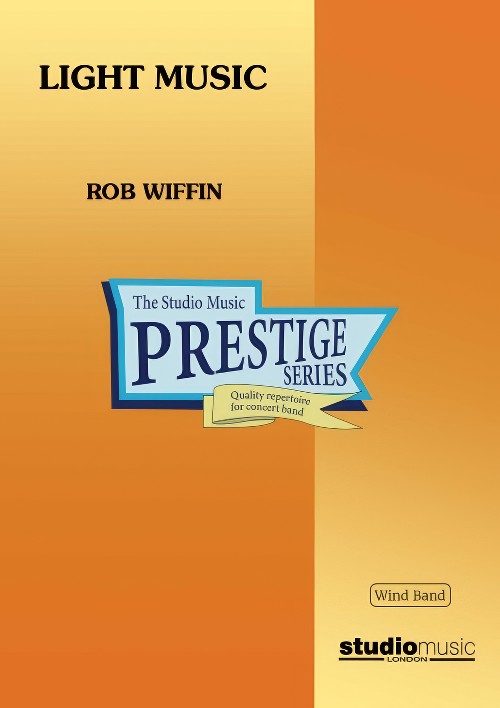 £27.95
£27.95Light Music (Concert Band - Score only) - Wiffin, Rob
The title Light Music alludes to different things. Most of the music in the suite is light in nature, and is in the inherently British tradition of 'light music' - original pieces which are often descriptive but essentially melodic. In another sense the music depicts various aspects of light itself. The title itself is a trick of the light!The first movement, Lightscape, portrays shifting patterns and types of light, highlighting some details and obscuring others. It is sometimes vibrant, dancing and full of movement, and sometimes tranquil.The second movement, At the going down of the sun, considers the light of the sun as it sets. Because of the nature of his career, the composer has written a fair amount of ceremonial music and this movement is close to that genre once again. There is, in the title, a reference to the familiar Remembrance line 'At the going down of the sun and in the morning we will remember them' from the poem For the Fallen by Robert Laurence Binyon (1869-1943) written in September 1914, a few weeks after the outbreak of the First World War. While the music is not a setting of these words - or in any way referential - there is an echo of the words 'We will remember them'.The suite finishes with Set Alight which starts off with a few combustible bars as the flame catches and then the fire is under way.Duration: 11.30
Estimated dispatch 7-14 working days
-
 £137.95
£137.95Light Music (Concert Band - Score and Parts) - Wiffin, Rob
The title Light Music alludes to different things. Most of the music in the suite is light in nature, and is in the inherently British tradition of 'light music' - original pieces which are often descriptive but essentially melodic. In another sense the music depicts various aspects of light itself. The title itself is a trick of the light!The first movement, Lightscape, portrays shifting patterns and types of light, highlighting some details and obscuring others. It is sometimes vibrant, dancing and full of movement, and sometimes tranquil.The second movement, At the going down of the sun, considers the light of the sun as it sets. Because of the nature of his career, the composer has written a fair amount of ceremonial music and this movement is close to that genre once again. There is, in the title, a reference to the familiar Remembrance line 'At the going down of the sun and in the morning we will remember them' from the poem For the Fallen by Robert Laurence Binyon (1869-1943) written in September 1914, a few weeks after the outbreak of the First World War. While the music is not a setting of these words - or in any way referential - there is an echo of the words 'We will remember them'.The suite finishes with Set Alight which starts off with a few combustible bars as the flame catches and then the fire is under way.Duration: 11.30
Estimated dispatch 7-14 working days
-
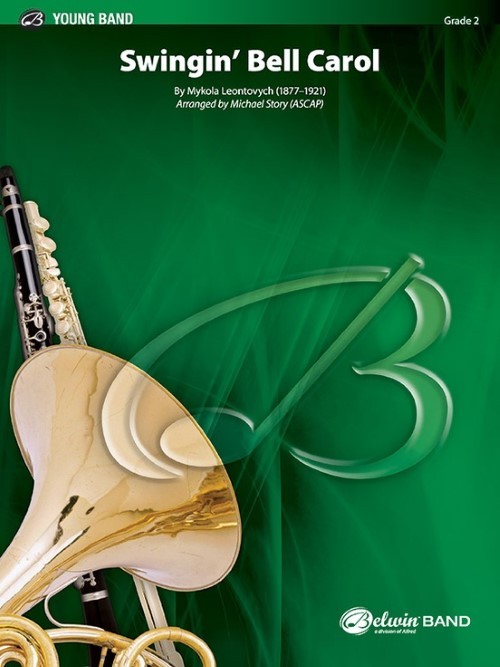 £55.50
£55.50Swingin' Bell Carol (Concert Band - Score and Parts) - Leontovych, Mykola Dmytrovich - Story, Michael
The inspiration of this setting comes from Ukrainian composer Mykola Leontovych's original 1914 work for mixed choir, which demonstrates both his sacred and nationalistic style. The four-note ostinato is known by several different titles and performed in a wide variety of styles including classical, metal, country, rock, and pop, and, with this jazz setting, the original takes on yet another new flavour.Duration: 2:00
Estimated dispatch 7-14 working days
-
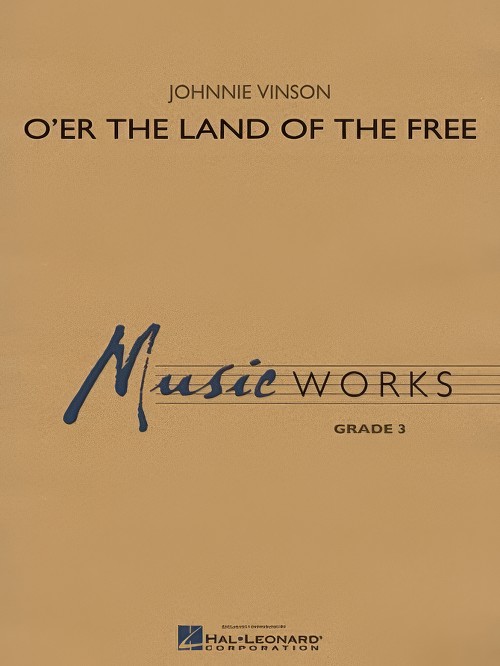 £60.99
£60.99O'er the Land of the Free (Concert Band - Score and Parts) - Vinson, Johnnie
Composed in 2014, this piece commemorates anniversaries of important events in American history: the writing of The Star Spangled Banner in 1814, the beginning of World War 1 in 1914, and the Allied invasion of Nazi-occupied France in 1944. The primary theme is original, with motives from America the Beautiful and The Star Spangled Banner interwoven throughout. A well-conceived and skilful lyric treatment for the young concert band.Duration: 4:15
Estimated dispatch 7-14 working days
-
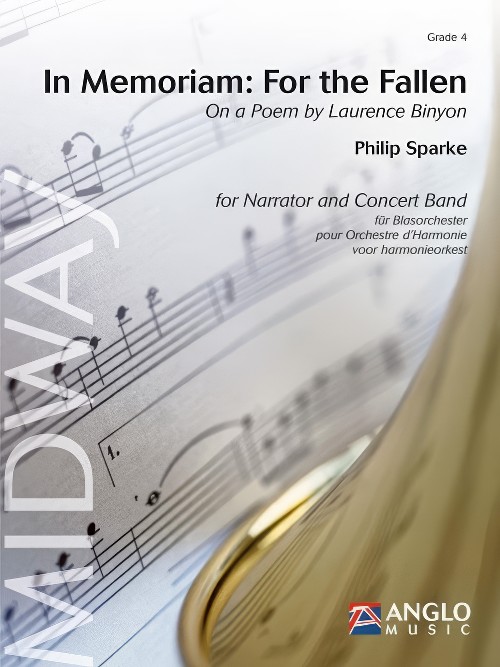 £152.99
£152.99In Memoriam: For the Fallen (Narrator with Concert Band - Score and Parts) - Sparke, Philip
In Memoriam: For the Fallen was commissioned by Bolsover District Council for the Bolsover Brass Summer School 2014. It is a setting for narrator and band of Laurence Binyon's (1869-1943) poem, For the Fallen, which was first published in The Times in September 1914. Binyon was dismayed at the outbreak of war and especially concerned by the large number of casualties suffered by the British Expeditionary Force in the early months of the battle on the Western Front. Too old to enlist, he volunteered as a hospital orderly in France. The poem is known world-wide as the famous fourth stanza (They shall grow not old...) has become a regular part of Remembrance Day and ANZAC Day services. In Memoriam: For the Fallen is a musical accompaniment to the poem, shadowing the mood of each stanza.Duration: 7.30
Estimated dispatch 7-14 working days
-
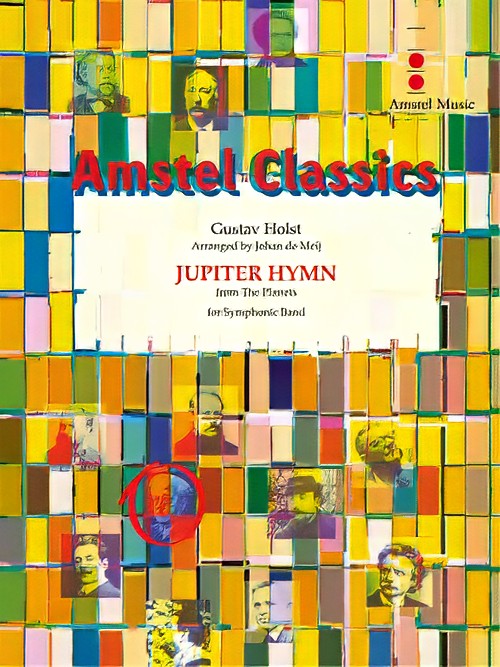 £63.00
£63.00Jupiter Hymn (from The Planets) (Concert Band - Score and Parts) - Holst, Gustav - De Meij, Johan
The Jupiter Hymn comes from the fourth movement ,Jupiter, the Bringer of Jollity from the orchestral suite The Planets by the English composer Gustav Holst (l874 - 1934), written between 1914 and 1917. The Planets was premiered in 1918 by Sir Adrian Boult and the Royal Philharmonic Society and remains one of the most colourful examples of our 20th-century orchestral literature. The Hymn is very suitable to start your concert program; for more solemn occasions, the alternative ending may be used. Duration: 2.30
Estimated dispatch 7-14 working days
